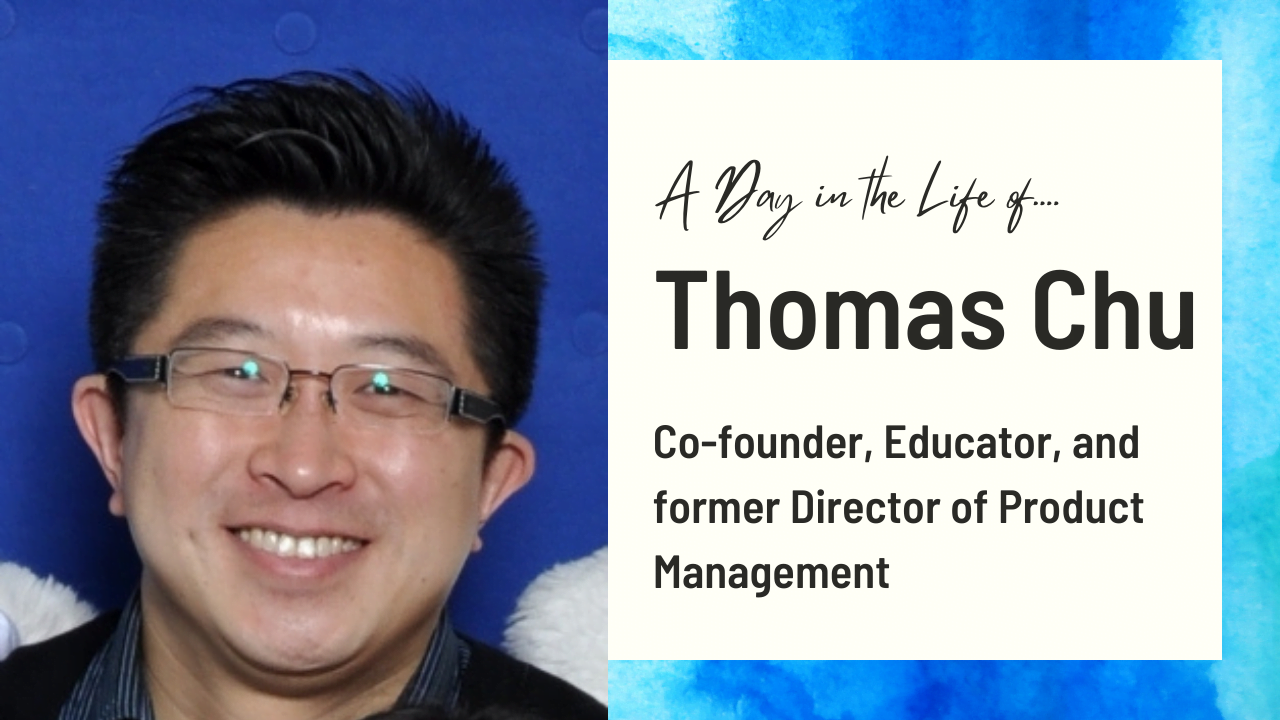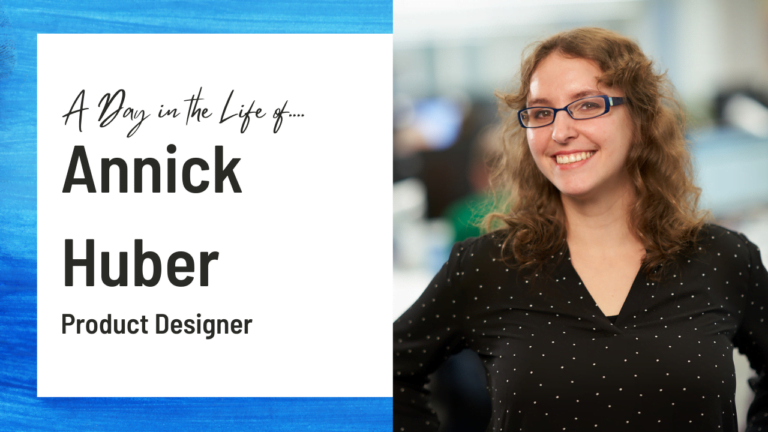How to Become an Effective Product Manager with Insights from Thomas Chu
Former IBM Product Manager Thomas Chu is grateful for the opportunity the company gave him 20 years ago as a new immigrant. He didn’t have all of the technical skills they were looking for, but they took a chance–and he’s really glad they did.
Thomas says IBM was “like a family” and he was always valued there. Before leaving to focus on Iron Tutor, the company he founded with his wife, Thomas had become the Director of Product Management.
Thomas shares that the key to being a successful product manager is the ability to look at your customer’s experience, and making it the best it can be–whether it’s a Mom and Pop business or a huge corporation. Technical knowledge can be helpful, but isn’t actually the most important trait he looked for when interviewing potential candidates.
He feels grateful for the people who’ve served as mentors in his life, and now he feels it’s his time to give back to the next generation.
Thomas believes the virtual learning environment brought on by Covid has been detrimental to high schoolers, and it felt like the right time to leave his job to devote his time to Iron Tutor.
In his limited free time, Thomas enjoys classical music and squeezing in some time to read. But he’s quick to admit he doesn’t have much time outside of eating, sleeping, and working!
What is a product manager?
Car salesman turned Director of Product Management to now co-founder, Thomas’ professional experiences span various industries. During his time as a car salesman, Thomas learned a ton about interacting with people and closing deals.
After the car gig, he ended up joining IBM – or rather convinced IBM to let him join – and dedicated over two decades of his career to the company. It was in this role where he discovered how much thinking like an entrepreneur comes in handy – especially as a product manager.
Photo by Marcus Aurelius
Product management is an interesting role that sits at the intersection of technology, business, and user experience. The product manager plays a pivotal role in the development, launch, and success of a company’s products.
The role of a product manager
A product manager (PM) is essentially the conductor of an orchestra who oversees the entire lifecycle of a product.
They are responsible for defining the product’s vision, developing a strategy to achieve it, and ensuring that the product is brought to market successfully.
It’s a role that requires a unique blend of technical expertise, business acumen, and a deep understanding of user needs.
Here are some key responsibilities that fall within a product manager’s scope:
Defining product vision
Product managers work closely with stakeholders to articulate a clear and compelling vision for the product. This vision serves as a guiding light throughout the product’s development.
Strategy development
PMs are responsible for creating a roadmap that outlines the path to achieving the product vision. This includes setting priorities, defining key features, and planning for market entry.
User-centric approach
User experience is at the heart of product management. PMs must understand the needs and pain points of the target audience and ensure that the product caters to these requirements.
Cross-functional collaboration
Product managers collaborate with various teams, including engineering, design, marketing, and sales. They act as a bridge to ensure that all teams are aligned with the product’s goals and objectives.
Continuous Iteration
Products are not static one-and-done entities. PMs continuously gather feedback, monitor performance, and take the necessary actions to improve the product’s features and functionality.
Thinking like an entrepreneur: The product manager’s mindset
One of the distinguishing features of an effective product manager is the ability to think like an entrepreneur, as Thomas mentioned on our podcast.
This means having a deep understanding of the market, competitors, and the business landscape.
A PM needs to identify opportunities, make strategic decisions, and take calculated risks – all while keeping the users’ best interests in mind.
In Thomas’ professional experience, he has determined that there are 2 types of product managers.
There are those who are process-bound.
Then there are those who think outside the box, like an entrepreneur. They endeavor to really own a product and take the reins.
Product managers must strike their own balance between following processes while maintaining a broader view of the implications of bringing a product to the market.
They must ensure that the product aligns with both the business strategy and users’ actual needs.
We’ll discuss how to own your role as a product manager later on.
How to become a product manager
The products that we use daily, from smartphones to apps to the clothing we wear, are the result of collaborative efforts across multiple departments – with a product manager orchestrating it all.
Sometimes dubbed the “CEOs of the product,” the reality is that product managers wield little direct authority over their teams. Instead, they rely on their people skills, particularly emotional intelligence, to align stakeholders around a shared vision for the product.
Product management demands vision, managerial finesse, and a deep understanding of a company’s product significance.
It’s a role that requires commitment to improving existing solutions while championing new and essential ideas.
Landing your first product manager job
The path to becoming a product manager is as diverse as the field itself. Some pursue product management in college, while others sort of fall into the role.
Some believe a technical background and knowing how to code is a requirement to be a product manager. While it’s helpful, those skills are not required.
Problem-solving skills, a keen focus on the customer, and strong analytical skills are vital for owning your role as a PM. These skills come in handy especially when it’s time to break down complex requirements into digestible tasks.
So, how do you become a product manager anyways?
Understand the technology
While you don’t need to be a coder, it’s essential to be able to grasp the technical concepts of the product in order to have meaningful conversations with your team.
The ability to translate technical details into layman’s terms is valuable for communicating with non-technical stakeholders and for yourself.
Don’t be afraid to ask your team questions. A looooot of questions.
Empathy for customers
To be effective, you must develop empathy for customers so you can understand their needs deeply.
Photo by Sora Shimazaki
Customers often express their requirements on the surface, and it’s your role to identify the real underlying issues and prioritize resource allocation accordingly.
Market research is incredibly valuable here.
Internal hires
If you’re already working at a company in a different role, look for opportunities to take on tasks that align with product management responsibilities.
Over time, this can help you internally transfer into a proper product management position.
Do the things no one else is doing. It will be noticed and rewarded.
Continued learning
Seek opportunities to talk to customers and hone your product management skills, even if you’re not officially in the role yet.
Inquire internally about a structured career path into product management.
Stay up-to-date with the latest developments in the industry by subscribing to newsletters or following certain product managers on LinkedIn.
Degrees and product management
While formal continued education is not mandatory for becoming a product manager, having a bachelor’s degree is typically recommended.
Different companies may have varying degree requirements, but real-world experience and problem-solving skills often outweigh formal education.
Owning your role as a product manager
Product management is a field where success often hinges on the ability to take ownership of your role.
Thomas Chu offered solid insights into what it means to own a product management title.
Photo by RDNE Stock project
Think like an entrepreneur
If you’re going to build a product, you need to own it mentally.
Thomas emphasizes the importance of cultivating a mindset that goes beyond just managing products and following processes.
He encourages product managers to approach their roles as a visionary.
This means being proactive and understanding the actual market needs and issues.
Prioritize people skills
People skills and emotional intelligence go a long way when managing a team, especially when it comes to your ability to align different stakeholders around a shared vision for the product.
You may not have direct authority over the teams you work with, but your capacity to influence and inspire goes a long way.
Being empathetic, understanding the needs and motivations of your team, and translating technical details into terms that resonate with non-technical stakeholders are skills that make a difference.
It is also crucial to create a collaborative and productive environment where teams work together to achieve a common goal – This means understanding what motivates team members and fostering psychological safety.
Distinguish essential ideas from duds
Don’t be afraid to say no.
Product managers often find themselves in a position where they must evaluate various proposals and concepts, sometimes on-the-fly in the middle of a meeting.
Thomas advises product managers not to make hasty decisions, and to think before they react.
By understanding the potential impact and implications of potential decisions, you can make informed choices for the better of your team.
Seek continuous improvement
Owning your role as a product manager involves a commitment to continuous improvement.
You should strive not only to enhance your own skills, but also to refine the products you manage.
Regularly seeking feedback, monitoring product performance, and making necessary adjustments are vital components of owning your role.
Embrace a growth mindset that encourages learning from both successes and failures.
A day in the life of educator Thomas Chu
Thomas Chu was a successful product manager turned executive at IBM for many years, and before that he was a car salesman.
Nowadays, Thomas is co-founder of Iron Tutor and a passionate educator. He’s even giving back all the knowledge that’s been bestowed upon him throughout the years through mentorships of his own.
Thomas believes that mentorships should arise from informal and natural relationships.
He’s grateful to those in his life who have given him opportunities and believes in the importance of passing on knowledge and empowering the next generation of professionals.
Thomas has a deep appreciation for classical music and sound systems. He also loves to read and play golf when he can find the time.
He met his wife at the University of Toronto, where both were studying engineering at the time.
Thomas and his wife co-founded Iron Tutor, a tutoring service designed to specifically address the lack of problem-solving skills prevalent in high school students and bolster their education experience.
Thomas currently lives in Toronto with his family.
Conclusion
As you make your way on the product management path, remember that everyone’s journey is different.
Entrepreneurial thinking, people skills, the ability to say no, and continuous learning will help shape you into an effective PM.
Your personal background, experiences, and career journey will shape your entry and approach to the role.
Thomas Chu was able to take the skills he learned as a product manager and translate it into being a successful business owner and founder – Who knows where the field of product management will take you!







